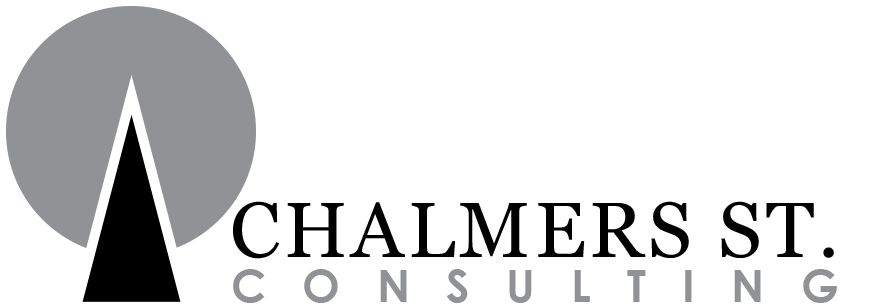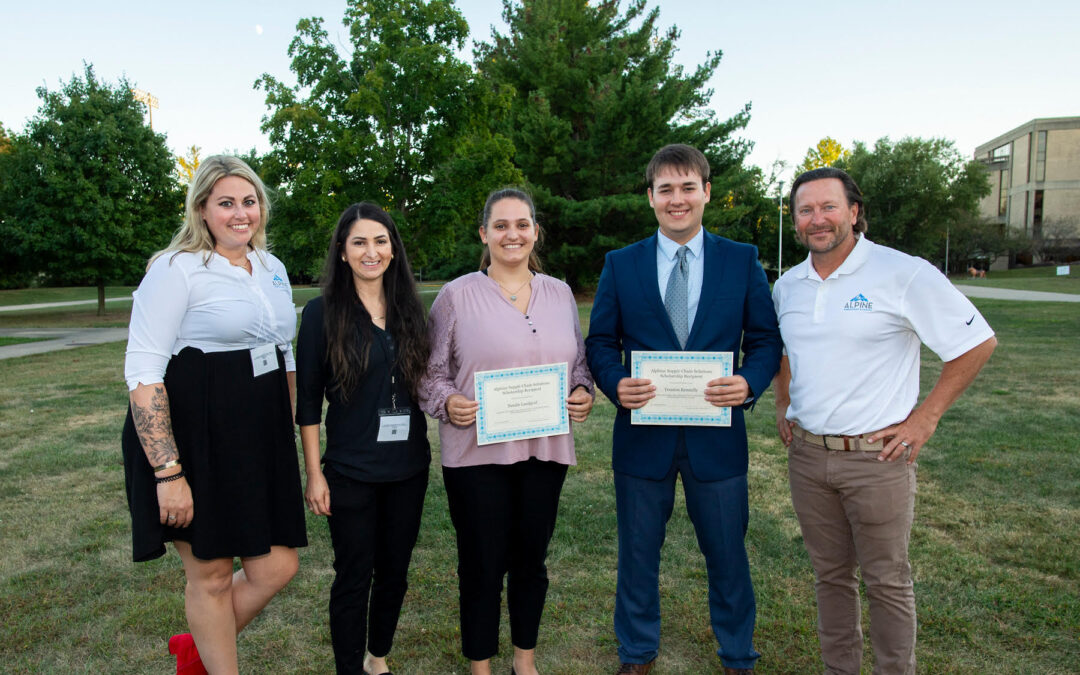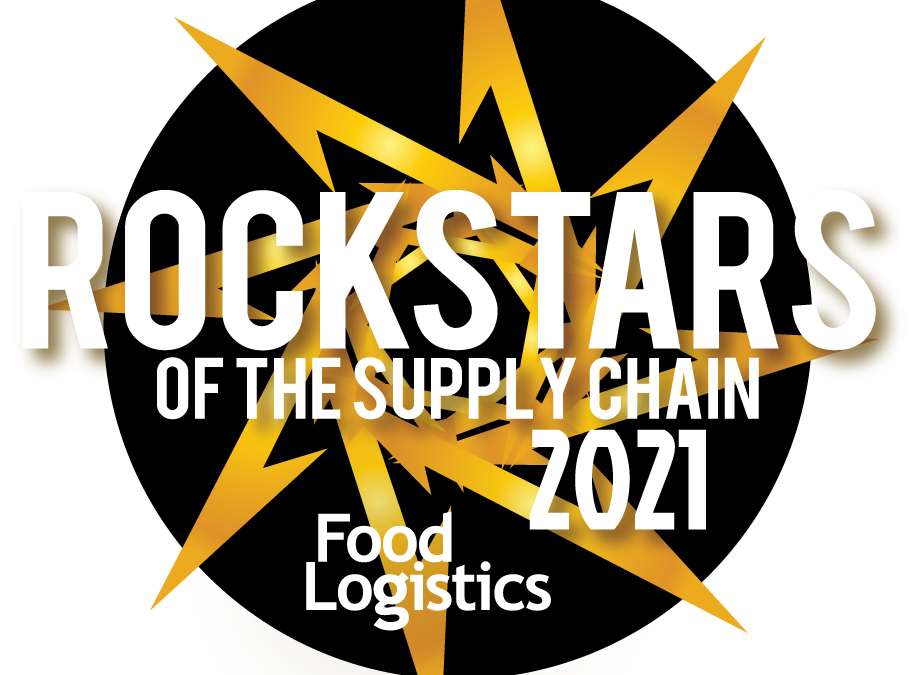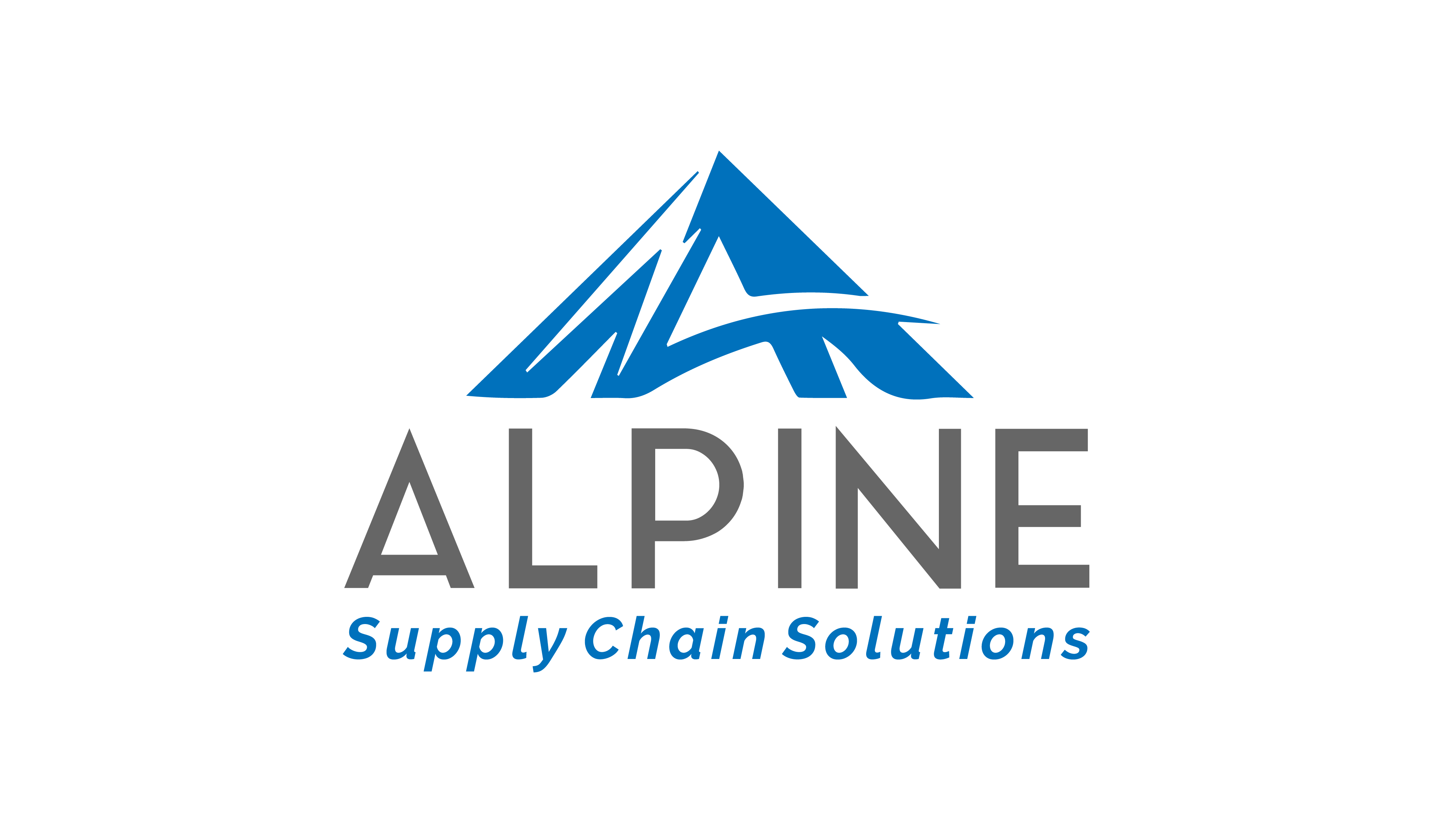
by Noelle Abarelli | May 24, 2021 | Alpine News Blog, Blog
Peanut butter and jelly, a dog and his ball, Kermit and Miss Piggy — what do all of these have in common? They’re unbeatable partnerships; unions that pass the test of time, and showcase just how impactful and worthwhile a partnership can be. That’s exactly what our partnership with Chalmers St. Consulting represents: a dedication to long-lasting process improvement and innovation created to successfully remove growth obstacles impeding organizational success.
Why do we work so well together? Because everything we do complements one another, allowing us to put our best feet forward, every single time. With our process-driven strategy solutions and Chalmers St.’s change-management expertise, the clients we help can now easily optimize their operations in one fell swoop. As Alpine takes charge of strategy, software, and system and facility design, Chalmers St. ensures that no staff member is left behind by coaching teams and training them to fully implement changes throughout their organization. Together, our work builds a foundation for excellence and continuous improvement.
With Alpine focused on solutions and implementation, it’s important for us to have a partner with personnel and change management expertise. According to Managing Principal of Alpine Supply Chain Solutions, Michael Wohlwend, “The supply chain industry is made up of many moving parts, and the people who run it are critical to its success. Having a partner with a focus on personnel and change management is vital to ensuring our clients can easily achieve their efficiency goals.”
Matt Kroll, Chalmers St. Consulting founder and president agrees, “Novel innovations are achieved by engaging employees in the problem solving process. Working with Alpine ensures we can bring our best-in-class problem solving structure to initiatives that allow a company to adapt to the changing demands of their customers. This is what it means to be agile and there’s really nothing more critical than that today.”
It’s not always easy to create a symbiotic relationship that lasts, but we’re confident our journey with Chalmer’s St. is just getting started—we’re excited to see what we achieve in the years ahead!
One of our first tasks as partners will be to educate our audience on how to succeed during volatile times. On May 25, 2021 at 1:00 CST, we will co-host a WERC webinar exploring immediate opportunities for continuous process improvement that will increase agility in the face of unpredictability while eliminating growth obstacles. Registration for the event is now open.
Learn more about Chalmers St. Consulting here.

by Noelle Abarelli | May 12, 2021 | Alpine News Blog, Blog
As Benjamin Franklin once said, “An investment in knowledge pays the best interest,” and we couldn’t agree more. Education requires a lot of time and money, two resources that aren’t readily available for many. That’s one of the many reasons we established the Pat Gallagher Scholarship fund in 2020.
The Pat Gallagher Scholarship was created by Alpine Supply Chain Solutions as a tribute to Pat, a founding member of Alpine Supply Chain Solutions. Pat was a 25-year supply chain engineering veteran who designed, built, and sustained distribution center networks for many Fortune 500 companies. The recipient of a Pat Gallagher Scholarship is an individual who demonstrates hard work and determination and an interest in the supply chain industry.
We’re thrilled to announce that this year we awarded the scholarship to two promising individuals at Western Illinois University, Natalie Landgraf and Trenton Kennelly. They will each receive $2,500 to help them pay for whatever scholastic needs they may have: tuition, textbooks, or any equipment that supports their studies.
Upon learning about this year’s recipients, Pat’s wife, Lori, stated “Pat would have loved to know that he’s helping young engineers with their schooling. He was always ready to mentor others and he loved everything about his job.” It was Pat’s dedication to education that inspired us to create this fund, so we’re all eager to see the amazing feats Natalie and Trenton will achieve in the years to come.
We look forward to the day both Natalie and Trenton can pass on their knowledge to future scholarship recipients. Until then, we wish them luck in their studies, and hope they’re able to achieve all they set their minds to, and then some.

by Noelle Abarelli | Apr 22, 2021 | Uncategorized
As companies have dealt with COVID-19’s effects, businesses have increased their focus on supply chain management and suppliers in particular. The events of the past year have underscored the importance of understanding each supplier’s value to an organization. Supplier segmentation is more necessary than ever. Here’s how to start the process and why it matters for your business.
What is supplier segmentation?
Supplier segmentation, a critical component of supplier relationship management, is the process by which organizations group their suppliers into categories based on a number of factors.
Understanding a company’s vendors and their importance to the organization are crucial early steps in the supplier relationship management process, said David Saunders, senior consultant at Ultra Consultants, a firm that serves the manufacturing and distribution industries. Supplier segmentation is a way of accomplishing this.
Companies have a variety of tools they can use to segment their suppliers.
One of the most useful is Kraljic’s Supplier Segmentation Model, Saunders said. The method is named for Peter Kraljic, who in a 1983 Harvard Business Review article proposed using the model to assess purchases. Businesses make a quadrant, similar to Gartner’s Magic Quadrant, which divides suppliers into four categories based on associated risks and other factors. For example, suppliers of less critical commodity items are in a different category than suppliers of key technologies.
The model has various benefits for the user.
One is that the model ranks the relationship with the supplier above short-term profitability consideration, Saunders said. In addition, instead of focusing on supply risk, the model attempts to evaluate the necessity or difficulty of finding an alternative supplier.
READ FULL ARTICLE

by Noelle Abarelli | Apr 8, 2021 | Alpine News Blog, Blog, HR Solutions
WMS providers adapt to pandemic-driven challenges by getting creative with remote implementation and training—and in the process, improve their service capabilities.
Demand for remote technology implementation took off last year, as the pandemic forced companies to limit human interaction in their facilities. For many software vendors, this meant a quick switch to the way they research, develop, and carry out complex projects—especially in the warehouse, where being on site allows a firsthand view of processes, problems, bottlenecks, and other critical issues. For warehouse management system (WMS) providers in particular, developing a distance-based protocol has created a whole new approach to understanding customers’ challenges and developing the right solutions.
“If you’re a software vendor … there’s a benefit to being on site,” explains Don White, CEO of Synergy North America Inc., developer of the cloud-based WMS SnapFulfil. “Translating the end quality of those interactions and bringing them remote [is challenging]. Can the customer be as successful if I’m not in the room? These are questions we had to answer.”
In answering those questions, WMS providers say they have adapted their approach to consulting, training, and delivering new solutions so they can best meet customer needs from a distance—a process some say will have lasting effects on the ways in which they interact with clients.
BUILDING A BETTER PROCESS
SnapFulfil began developing a remote implementation (RI) plan for its WMS well before the pandemic, but interest and adoption have soared since the program’s launch a year ago, White says. The RI program allows onboarding of the WMS from anywhere in the world within a matter of weeks and also provides customized virtual support and training. Essentially, the program is a document that guides managers and staff through the implementation process, offering online training, development, and consulting support along the way. Developing the product required SnapFulfil to rethink its approach to service and retrain its project managers with a focus on curiosity and questioning—especially in the early phases of project development, White reports.
“We worked a lot on our project teams being curious [because] you don’t get the depth of answer if you’re remote,” he explains. “The way we interact today is a lot more Socratic; we ask why business processes are the way they are. This requires the customer to give it a bit more thought, and it’s a different approach for the project manager too.”
Training and education have changed considerably as well. Typically, project leaders will conduct three full days of on-site training, White says, but with the RI program, they provide two- to three-hour sessions over five or six days. In addition to reducing screen time, the process also allows employees to step away from the classroom and handle other aspects of their job that are often difficult or stressful to put aside during a traditional technology implementation.
“We’ve changed our training methodology to give them more flexibility,” White explains, adding that the increased flexibility benefits SnapFulfil as well. “A project team descending on a facility is, by nature, disruptive. [Being remote] allows you to more tightly schedule calls with different resources at the client, so you can be more flexible in how and when you [engage with them].”
White describes SnapFulfil as a highly configurable WMS suited for a wide range of businesses—from the Etsy-based entrepreneur all the way up to large multilocation enterprises. The company’s earliest RI implementations occurred in the first few months of 2020, but the pandemic accelerated the use of that model. White says the shift to RI helped SnapFulfil initiate or continue eight projects in 2020, four of which had gone live by the end of the year.
“We were in process [with the RI program], but the catalyst for speeding it to market was the pandemic,” White says, emphasizing customers’ changing service needs in a remote environment. “Adversity breeds solutions. We had a successful year closing new business. To do that, you have to be good at the service piece.”
TAPPING INTO NEW TECH TOOLS
SnapFulfil is not alone when it comes to facing down such challenges. Managers at Zethcon Corp., which specializes in WMS for third-party logistics service providers (3PLs), say the pandemic necessitated a sharper focus on the tools it uses to communicate with clients during project implementation—a factor that helped smooth projects that were already well underway last spring, according to Lance Jordan, Zethcon’s director of professional service.
“As an organization, we were prepared,” says Jordan, adding that project leaders were scheduled to be on site with a client to implement Zethcon’s Synapse WMS when the pandemic hit last March. “We reset. We had to leverage new tools.”
Zethcon’s first step was to upgrade its internal business platform to a more robust program for video conferencing, document sharing, and so forth. The change helped accommodate broader use of those tools as employees and projects went remote. The company also got creative with existing technology; in lieu of a site visit, clients were asked to take cellphone videos of their facilities as project development began, for example.
“We need to see what the building looks like,” Jordan explains. “In the absence of being there, we relied on video. We typically want to be in the room with our clients—to create that relationship from the beginning. We had to manage all of that on a fully remote basis.”
Zethcon’s training regimen changed as well. Training sessions were chopped into smaller blocks, using multiple trainers instead of a single one as a way to keep clients engaged, Jordan explains.
Zethcon applied these principles to a Synapse implementation for a 3PL last spring, first targeting a pilot facility in Philadelphia and then bringing on a second facility, in Toronto. A local Zethcon representative was eventually able to visit the Philadelphia site, but due to ongoing travel restrictions, the WMS provider had not set foot in the Canadian facility as of this January. Both facilities were live with the WMS by the end of 2020, and Zethcon was set to begin deploying robotics at the Philadelphia site this year. Jordan says the company will begin a project at a third facility for the same 3PL on the West Coast this spring.
“There was no slowing down for sure; we just had to get creative with our communication, our reporting, and how we manage things,” Jordan says of the project. “I think in the end, when the dust settles in late February and early March, [this client] will have gotten about a million square feet, possibly, on the system within 12 months.”
Michael Wohlwend, managing principal of systems integrator Alpine Supply Chain Solutions, agrees there is no slowdown in sight, noting that demand for WMS software is up and will continue to rise in 2021. He also agrees that remote implementation strategies make that work harder and place a greater emphasis on vendors’ and integrators’ creativity in delivering service.
In lieu of site visits, Alpine, too, utilized virtual tours as a way to “really understand how the operation works to help with the design process,” Wohlwend reports. He adds that the company will continue to utilize those strategies as needed, especially as demand for technology grows.
“We just finished our sixth [WMS] selection, and now we’re strategizing on our eighth implementation in the last year,” he says, emphasizing a strong outlook for enterprise solutions. “Demand is way up.”

by Noelle Abarelli | Apr 8, 2021 | Alpine News Blog
Rock star of supply chain award recognizes influential individuals in the global cold food supply chain.
Alpine Supply Chain Solutions, a leader in supply chain consulting, today announced industry publication Food Logistics named Michael Wohlwend, Managing Principal of Alpine, a winner of its 2021 Rock Stars of the Supply Chain award.
The Rock Star of Supply Chain award recognizes influential individuals in the industry whose achievements, hard work and vision have shaped the global cold food supply chain. This year’s list includes individuals from software providers, consultancies and academia, trucking and transportation firms, grocery retail and delivery outlets, and more, all who have met and exceeded in safety, efficiency, productivity and innovation throughout the global cold food supply chain
“These professionals are making waves in an industry upended by the global pandemic. Whether it’s pivoting into a different channel or implementing emerging technologies, these supply chain leaders prove that hard work pays off,” says Marina Mayer, Editor-in-Chief of Food Logistics and Supply & Demand Chain Executive. “These winners collaborated, optimized, developed, educated and played a critical role in the survival and success of their company amid a global pandemic. I am honored to recognize these individuals, and continue to extend my utmost gratitude to everyone in the cold food supply chain industry for their time, efforts and innovations to keep food moving through the chain in a safe and efficient manner.”
“As the food supply chain continues to be tested, I’m honored to be working with clients like Bongards, Good Eggs, Swire Coca-Cola and SF Marin Food Bank to ensure safe and timely delivery of food,” said Michael Wohlwend, Managing Principal, Alpine Supply Chain Solutions. “It is an honor to be recognized by Food Logistics and I am proud to be part of an industry that has played a vital role in connecting people and the products they needed most over the past year.”
To learn more and view the full list of 2021 Rock Stars of the Supply Chain winners, visit Food Logistics.
About Food Logistics
Food Logistics is the only publication exclusively dedicated to covering the movement of product through the global cold food supply chain, focusing on trucking, warehousing, packaging, risk management, food safety and more. Go to www.FoodLogistics.com.
About Alpine Supply Chain Solutions
Alpine Supply Chain Solutions, based in Chicago, IL, is a supply chain consulting company driven to ensure their clients get the most value from their investments. Their approach to every project starts with the data and ends with a cost justifiable solution. With deep roots in industrial engineering, Alpine’s approach is unique. For more information please visit: www.AlpineSupplyChainSolutions.com.






